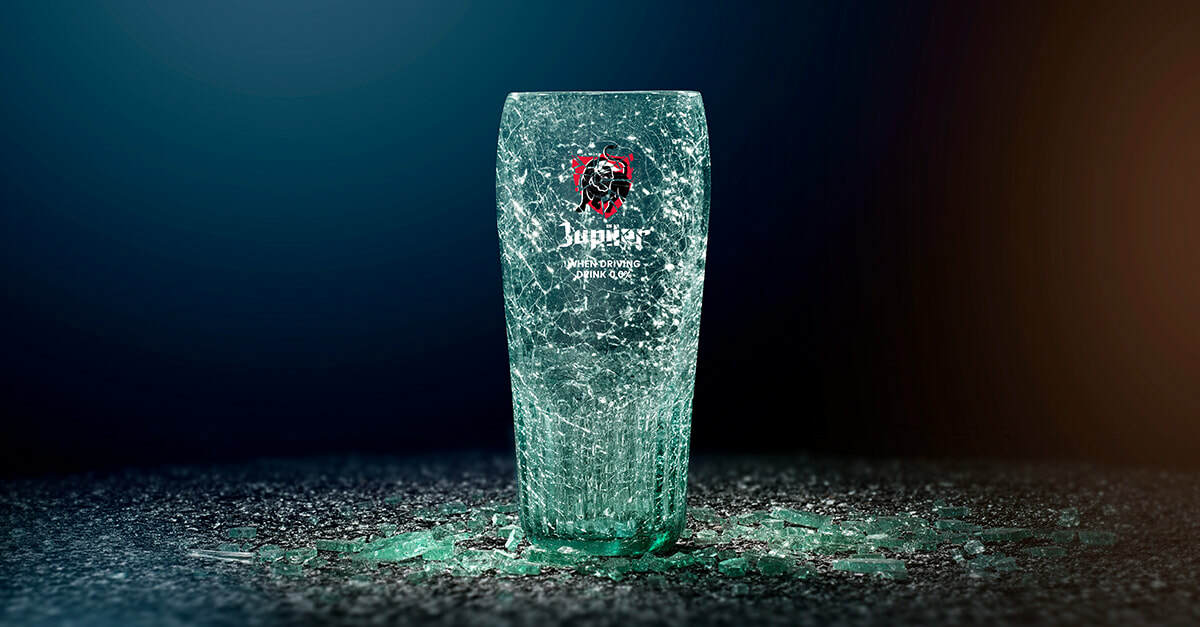
That is also the opinion of former Fairtrade director, and marketer, Nicolas Lambert, in his book: "Le marketing peut-il sauver le monde?". The answer is: yes.
At the heart of Jupiler's campaign is a glass of the favorite beer brand made from shards of a car window after a fatal crash in which the driver was under the influence of alcohol. Every year, 2,541 people are seriously injured and 37,247 slightly injured as a result of car accidents on Belgian roads. Respectively, 12% and 11% of the drivers checked were under the influence of alcohol.
The message of the 'broken glass' is clear: drinking and driving do not go together. It is an unusually hard, confrontational campaign elaborated by the communication agency BBDO: nothing is more precious than your own life, or that of your fellow passengers. With this campaign, Jupiler wants to take its responsibility and make people think about their alcohol consumption where it matters: in a café, when people still have to get home. Despite the initial shock effect, it makes everyone think twice about what the consequences can be if they drive under the influence of alcohol, according to initial reactions.
Jupiler's campaign very nicely substantiates the message of Nicolas Lambert's book: Le marketing peut-il sauver le monde? (for the time being only in a French-language edition): brands have a responsibility to take on and can make a social difference. And that despite the fact that marketing has lost much of its luster in the recent past, and has lost credibility due to all kinds of 'greenwashing'. Marketers must therefore first dare to question themselves, Lambert believes, and as I have repeatedly argued here in the past. But it is not enough to hold up a critical mirror to oneself. Marketing needs to reinvent itself to build a more sustainable world with respect for people and planet.
Because marketing is de facto present in our economy, Lambert argues, either implicitly or explicitly. An alliance ('marriage') between businesses, consumers and society as a whole is absolutely necessary to successfully address the challenges. New balances are required. Nothing will be what it once was for marketing. But that is also where the great opportunity lies: actively participating in the transition to an economy that has more respect for the planet and people. It presents us all with fundamental choices: what world do we want to live in tomorrow? "It's not an easy choice," Lambert concludes, "but it's the only right choice and certainly the most exciting."
Le marketing peut-il sauver le monde, by Nicolas Lambert, has 181 pages and is published by Racine, and available in the better bookstores, and online. A Dutch edition would be very welcome.
Written by BBDO Belgium Team, We create effectiveness